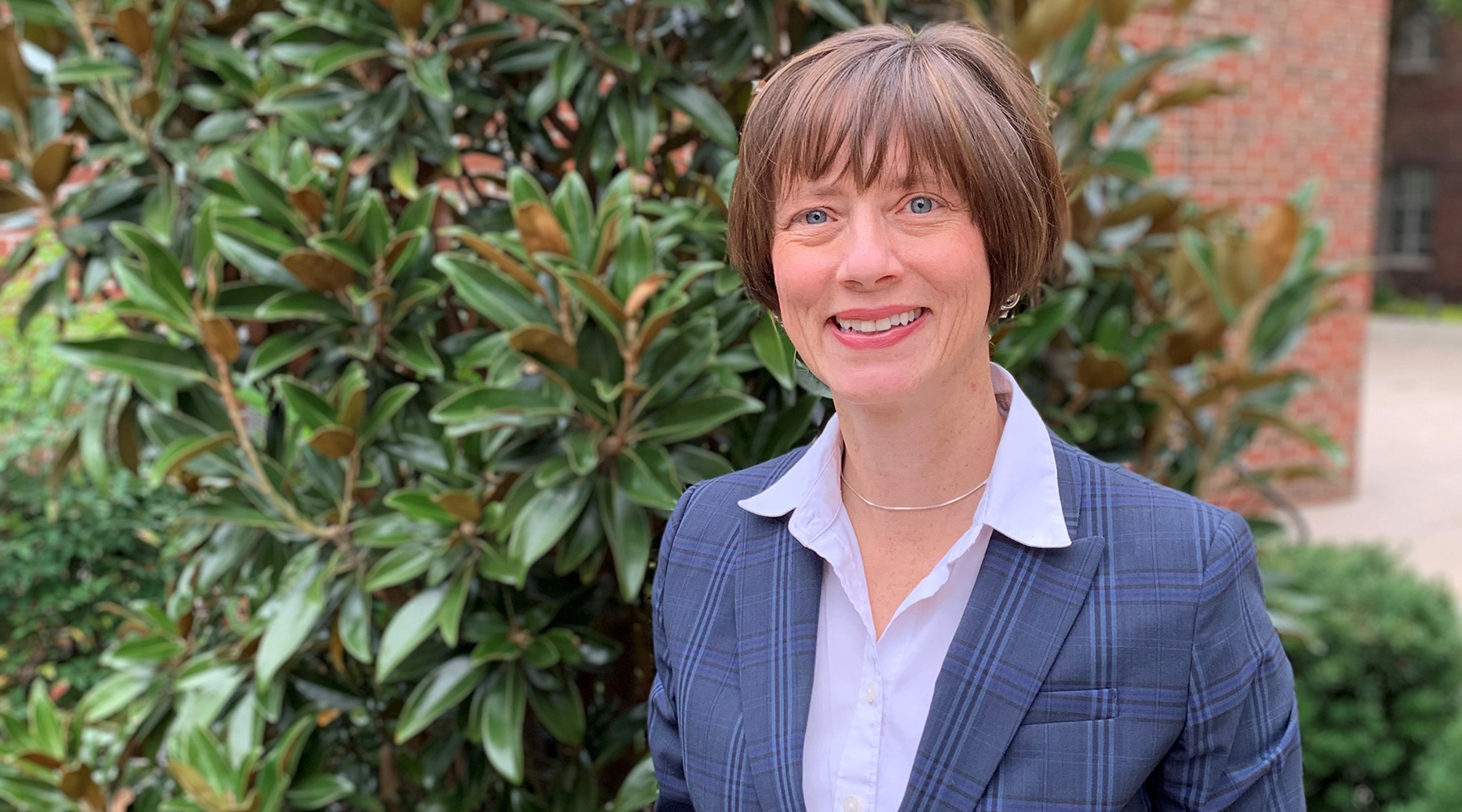Scientist. Scholar. Student.

A Conversation with the Founding Dean of the Parkinson School for Health Sciences and Public Health.
Elaine Morrato brings her unique background in academic public health and clinical and translational sciences; the pharmaceutical industry, and government, to Loyola University Chicago as Founding Dean of its Parkinson School for Health Sciences and Public Health. We asked about her career, how she intends to spend her first 100 days (and beyond) and how she feels about moving to Chicago – in February!
You have a multi-faceted career.What led you to a public health?
Public health is all about interdisciplinary teamwork and collaboration. I am energized in bringing diverse disciplines and stakeholders together to solve health problems in new ways. My training is in epidemiology and I am board-certified in public health. But I also have a background in product development and marketing, and I am a dissemination and implementation scientist in clinical and translational research. One of my public health interests is the scale-up and spread of U.S. Food and Drug Administration (FDA) drug warnings and risk management practices. I’ve been a visiting scientist with the FDA Office of Surveillance and Epidemiology, Center for Drug Evaluation and Research, since 2018. Over the last decade, I have advised the FDA on issues of drug safety and risk management.
Why Parkinson?
There is nothing more exciting for me than being a part of building a new, innovative school committed to excellence in education and service to those in need. During the University’s 150th anniversary, Parkinson is driving forward to educate the workforce of tomorrow, leverage data to improve health care delivery and outcomes, build leadership in health care education and research, provide agile solutions for students, and bring health care equity to those on the margins.
And what is it about Loyola University Chicago that attracted you?
I am excited about the opportunity to leverage my passion for leading multi-disciplinary teams and organizations to improve population health. There are at least four broad areas that helped answer the “why” question for me:
- Loyola’s Jesuit’s values mirror my own; I strive to live by principles of values-based leadership and reflectivity in my intellectual inquiry.
- Loyola’s emphasis on a holistic view of people and society to improve public health is so vital. Today’s public health and healthcare professionals are challenged to affect upstream social determinants of health and embrace systems thinking to improve population health.
- Loyola’s strategic emphasis on innovative and collaborative interdisciplinary education is energizing. We must find new ways to meet the learning needs of today’s generation as they pursue careers within an evolving healthcare landscape. Parkinson’s degree programs and health science disciplines are aimed at addressing those needs. They are also a natural fit with my inter-professional experience and interests in clinical and translational research and public health.
- The entrepreneurial opportunity! And there are several – including shaping the strategic direction for Loyola’s new Center for Health Entrepreneurship and Innovation -- as well as continuing to build out the School.
At this early stage, how is your transition to Loyola University Chicago?
I am most grateful to Interim Dean Kathy Bobay, for her vision, leadership, and hard work. She launched the school (and all that entailed) with a dedicated group of faculty and staff. Together, they welcomed the first class. She has been invaluable in helping me onboard and learn more about Parkinson and Loyola. And of course, Dean Bobay also was fortunate to work with Bob and Betty Parkinson – proud Loyola alums, innovators and visionaries. Through their generosity, Bob, Betty, and their family provided the lead gift to create the School.
I continue to appreciate the warm welcome I receive from Loyolans! I am really looking forward to working at Loyola, making Chicago our new home – and building the Parkinson School of Health Sciences and Public Health into one of the leading schools of its kind!
What are you hoping to do in your first 100 days?
I want to listen and learn from students, faculty, and staff to find out their hopes, concerns, and needs – essentially anything that’s on their mind. I hope to meet with, listen, and learn from as many students, faculty, and staff as possible through these informal gatherings. Watch for invitations soon!
Longer term, I want to work with these and other “stakeholders” on our shared priorities. Those might be developing the culture and identity of the school, expanding and diversifying academic offerings as well as the student population, fostering external partnerships, growing the school’s resources – and other priorities. But I need to hear from you: students, faculty, and staff. You will find that I am collaborative by nature and I know – for sure – that I don’t have all the answers. I look forward to working with you.
You’re moving to Chicago – in February?
That’s right! But keep in mind that I’m moving from the Colorado School of Public Health in Aurora, Colorado to Chicago. Winters don’t faze me; I understand winter (love snow!) and I’m a Midwesterner at heart. I grew up in St. Louis, received my undergraduate biochemistry degree from Purdue University and began my professional career at Proctor & Gamble in Cincinnati. A bonus of moving to Chicago is being near one of our adult children, who lives and works in the area.
